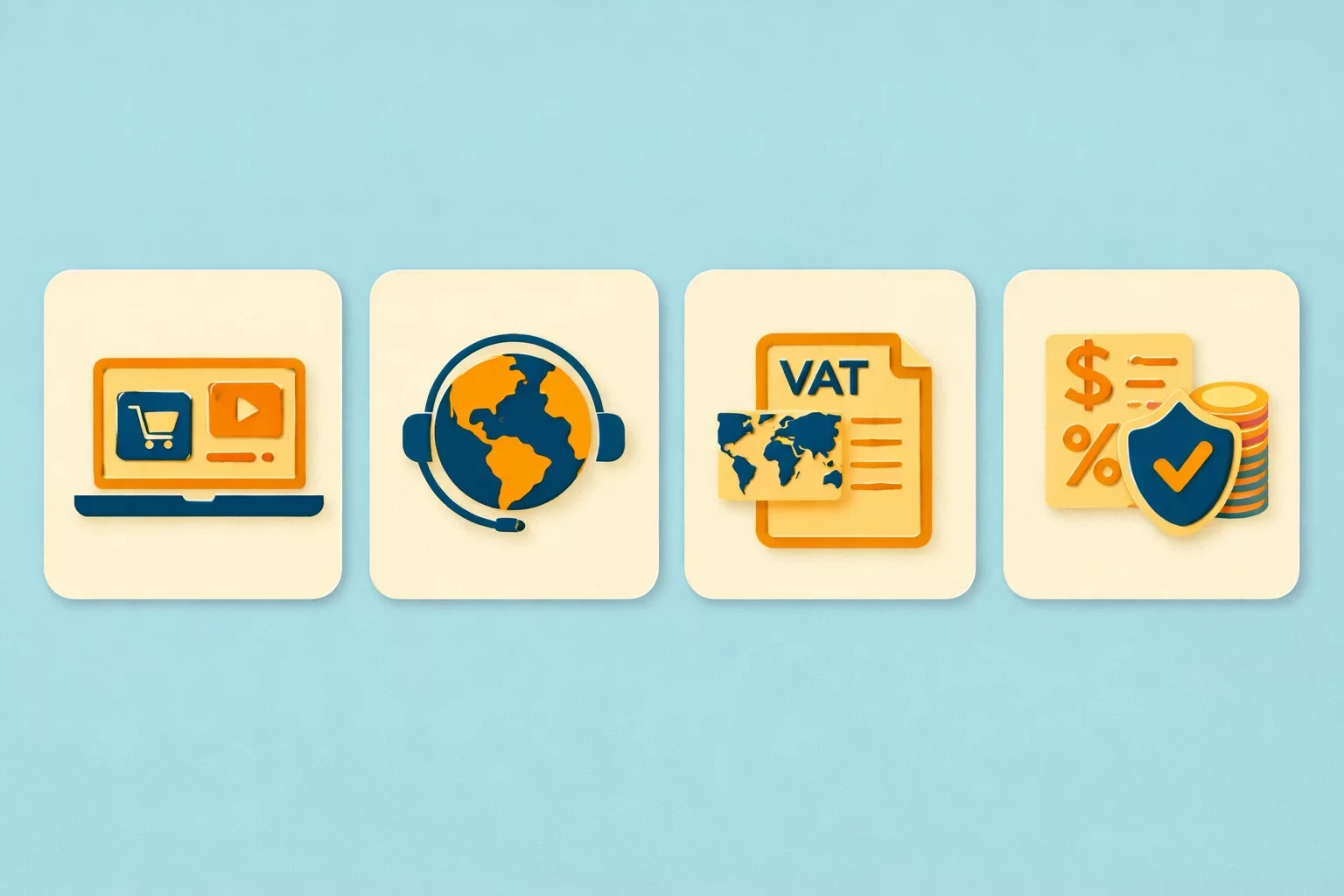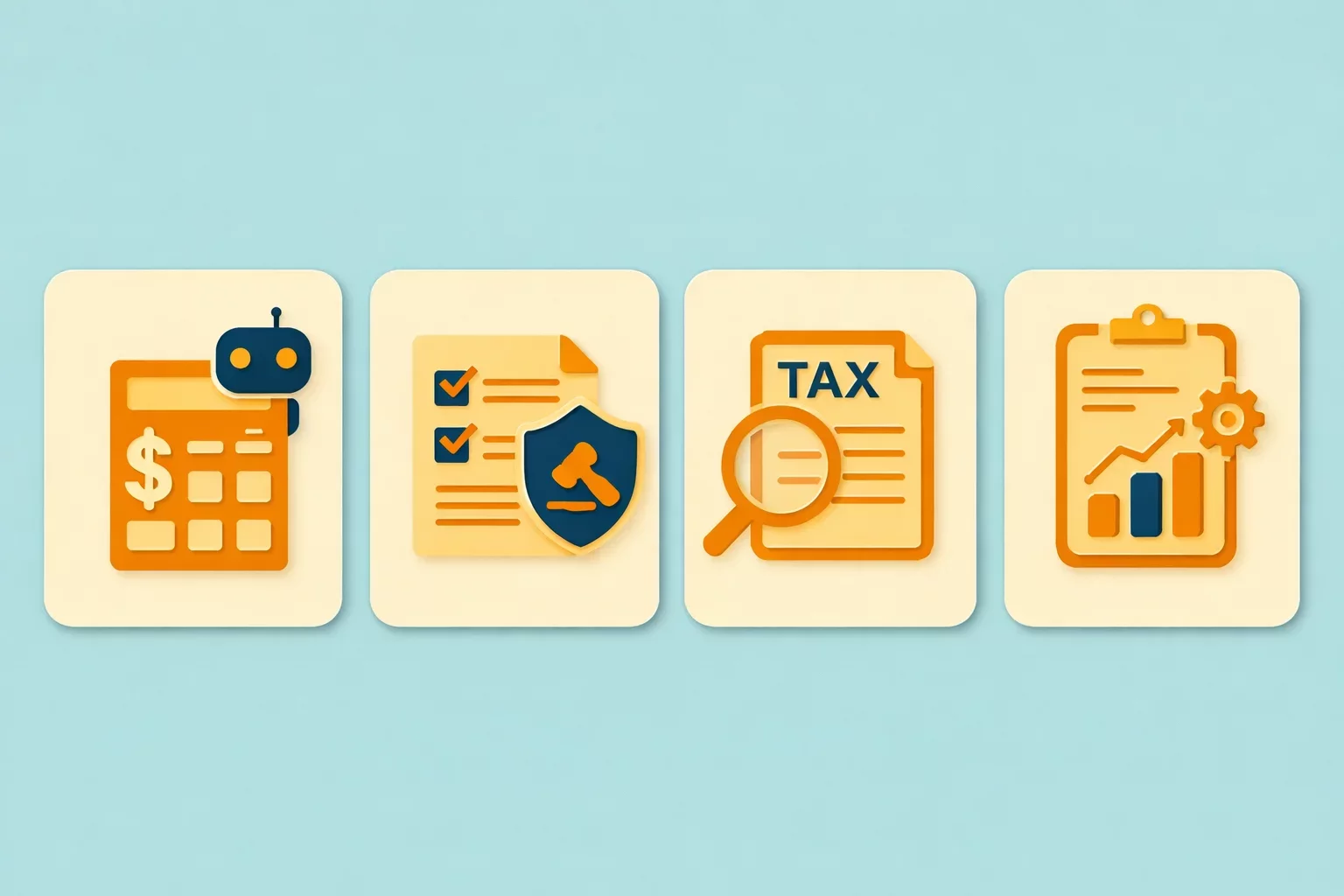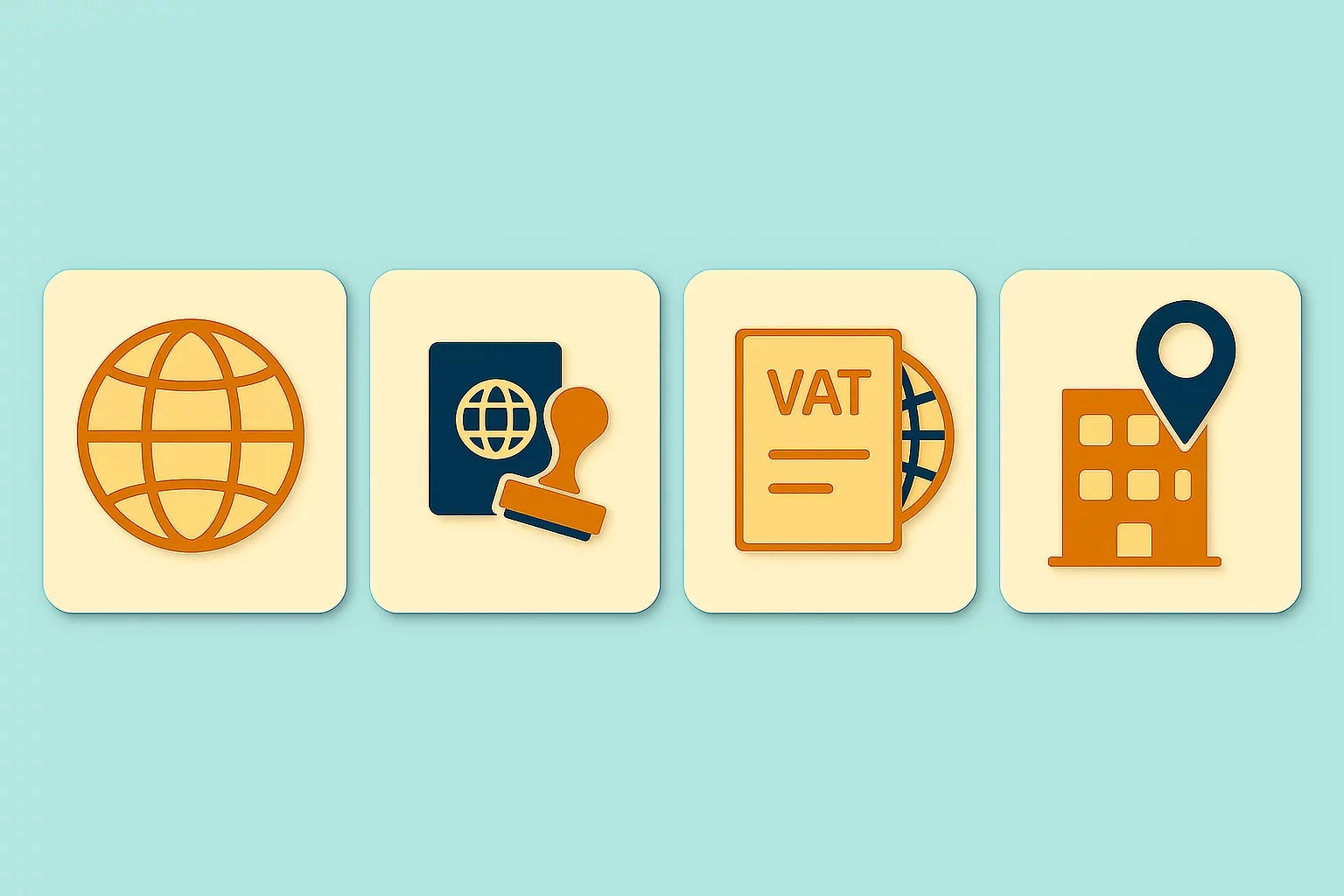How Registration Threshold Changes Impact Businesses | VAT, GST & Sales Tax Compliance

🎧 Prefer to Listen?
Get the audio version of this article and stay informed without reading - perfect for multitasking or learning on the go.
The shift in business models, increased cross-border trade, and the rapid rise and development of digital goods and services have impacted all aspects of taxation, including the registration threshold. As governments strive to keep pace with technological advancements and the evolving methods by which businesses offer and supply goods and services, including digital ones, they are expanding the tax base and updating rules and regulations regarding the registration threshold.
Therefore, businesses operating globally must understand not only the local VAT, GST, or sales tax registration rules and requirements but also must know when they need to register in other jurisdictions, what their obligations are, and what happens when the registration threshold increases or decreases.
What is a Registration Threshold?
In the context of indirect taxation, such as VAT, GST, or sales tax, the registration threshold refers to the minimum annual turnover that a business must reach within one year to register for tax purposes. It may be considered a gateway, meaning that businesses below the threshold do not need to register for VAT, GST, or sales tax. In contrast, those that exceed the threshold must register and comply with a series of regulatory requirements.
One of the functions of the registration threshold is to shield small businesses from the compliance burdens and costs associated with tax registration. At the same time, it allows national Tax Authorities to focus on larger, economically more significant businesses.
Additionally, countries typically have a registration threshold for local taxable persons but do not have a VAT registration threshold for foreign businesses. In those cases, the registration threshold serves as both a relief and an exemption for domestic companies, while foreign companies are subject to stricter control by the Tax Authorities. Moreover, governments may choose this solution as a means to protect domestic markets or industries.
For example, EU countries typically have defined VAT registration thresholds for domestic businesses, and do not have any threshold for foreign companies making taxable supplies to local consumers. Similarly, in the UK, the VAT registration threshold for domestic businesses is GBP 90,000, whereas there is no registration threshold for foreign companies.
Generally, only sales to consumers in a particular country are taken into account when calculating the threshold. However, in countries such as the US or Canada, sales and use tax or GST/HST rules and regulations are defined at the state or provincial level.
Another notable example is Switzerland, which includes both in-state and cross-border supplies in the CHF 100,000 VAT registration threshold set for domestic taxable persons.
The Implications of Exceeding the Threshold
Once a business exceeds the registration threshold, it transitions from a more simplified tax position to a regulated one, which brings a range of obligations and requirements. For starters, businesses must register for, charge, collect, and remit VAT, GST, or sales tax to the relevant Tax Authority.
Additionally, the invoice requirements change, since businesses must start issuing invoices that include applicable tax and the correct tax rate. Furthermore, registered businesses must file periodic VAT, GST, or sales tax returns following national or state filing frequency rules.
Apart from administrative burdens, registering for VTA, GST, or sales tax can also affect pricing strategies, cash flow, and competitiveness. For example, once they register for tax purposes, businesses may need to adjust prices to account for the applicable tax rate, which could have a negative impact on price-sensitive consumers.
On the other hand, businesses become eligible to reclaim input VAT, which is the VAT they paid for business-related purchases, thereby offsetting some of the cost burdens. Nevertheless, this requires careful bookkeeping.
It is essential to note that when businesses fail to meet their registration obligations after unknowingly exceeding the threshold or simply not realizing they must register once they make a taxable supply, a backdated registration may be required. This may also lead to backdated or retroactive tax liabilities, interest, and penalties.
Businesses can generally register, even if they do not exceed the threshold, allowing them to charge taxes on their sales and reclaim VAT on their purchases. However, the decision to register voluntarily lies strictly with businesses and their assessment of whether registering is beneficial for them.
Rules in Countries Without Registration Threshold
In situations where the government does not set a registration threshold, businesses must typically register for VAT or GST before making their first taxable sale or upon making a supply. This is the case in the UK, EU countries, and India, where there is no VAT and GST registration threshold for non-resident or foreign businesses.
However, in the US, which has sales and use tax, in-state businesses are required to register for sales and use tax if they have physical presence there. Businesses established outside a specific state must register once they exceed the sales and use tax threshold, commonly referred to as the economic and marketplace nexus thresholds, defined at the state level rather than the federal level.
Impact of Increased or Decreased Registration Threshold
Depending on the effect the government wants to achieve, it may increase or decrease registration thresholds. An increased threshold typically benefits small businesses, which may remain unregistered for more extended periods. For the government, this means less revenue from tax collection. However, it may also contribute to the increase in the number of small businesses, especially those newly established.
Additionally, registered businesses, such as VAT-registered businesses, that do not exceed the increased threshold may decide to deregister if that is beneficial to their business operations.
Conversely, a decrease in the registration threshold brings more businesses under the scope of indirect taxation rules and regulations. Consequently, the governments collect more taxes and increase their revenue if there are more businesses subject to VAT, GST, or sales tax. Since more small businesses would become liable for taxes, decreasing the registration threshold could result in fewer small businesses being established.
Conclusion
Businesses should remember that there may be different thresholds depending on the type of product that they supply, such as physical or digital. Additionally, governments typically establish distinct thresholds for domestic and foreign businesses. Furthermore, while in most countries they are referred to as VAT or GST registration thresholds, depending on the type of tax applicable, in the US, it is known as the economic nexus threshold.
Therefore, businesses operating in multiple jurisdictions should stay informed of any changes in registration thresholds, implement a procedure for monitoring whether they exceed a specific threshold, and register on time to avoid backdated registration, penalties, and interest.
Source: VATabout - Complete Guide to VAT in Denmark, VATabout - VAT in Czech Republic Explained, VATabout - Comprehensive Guide to VAT in Finland, VATabout - UK: VAT Compliance for Foreign Taxable Persons, Swiss Federal Tax Administration, VATabout - Backdated VAT Registration

More News from World
Get real-time updates and developments from around the world, keeping you informed and prepared.
-e9lcpxl5nq.webp)
































-7xdqdopxl6.webp)



-a9bz8kz2cs.webp)































